Welcome to all our new readers! Parliament is back in the swing, the Labour leadership contest kicks off and the OfS has been VERY busy.
Parliamentary News
Daniel Zeichner, Labour MP for Cambridge, has been elected the new chair of the all-party parliamentary group for universities.
The Budget has been scheduled for Wednesday 11 March 2020.
Parliamentary Questions
Now that Parliament is regaining its stride relevant parliamentary questions will become more frequent (albeit on the usual topics).
Working Class | Educational Standards
At Prime Minister’s Questions on Wednesday Rt Hon Sir David Evennett raised concern about the lack of educational achievement amongst working class boys. He asked whether the Government would prioritise ensuring that “all school children are given the opportunities to maximise their talents.” PM Boris stated the Government were investing “record sums” in early education and would shortly be setting up a National Skills Fund. Local MP Michael Tomlinson (Mid Dorset and North Poole) welcomed the additional funding for education, but noted that equally important were disciplines and standards, and asked whether there will be a continuous focus on most disadvantaged, especially on literacy and numeracy. Boris agreed more needed to be done and that was why they were investing more.
Free Speech
Q – Dr Matthew Offord: Secretary of State for Education, what steps he will take to promote (a) diversity of thought and (b) freedom of expression on university campuses.
- A – Chris Skidmore: This government will ensure that our universities are places where free speech can thrive, and will strengthen academic freedoms. The freedom to express views openly, challenge ideas and engage in robust debate is crucial to the student experience and to democracy. Individuals should never be in a position where they can be stopped from, or are made to feel inhibited in, expressing an opinion perfectly lawfully. Similarly, universities should be places where students are exposed to a range of views, including those which may be controversial, and are encouraged to debate and challenge them.
- Free speech is protected in universities by law and is embedded in the Office for Students’ Regulatory Framework. Under the Education (No 2) Act 1986, universities have a specific duty to take reasonably practicable steps to secure freedom of speech within the law for staff, students and visiting speakers. The government worked with the Equalities and Human Rights Commission, who published new guidance in February 2019 on freedom of speech in higher education to support higher education providers and students’ unions in delivering their duties.
- The government will be looking closely at how well higher education providers are meeting these obligations and will consider whether further action is needed, working with a range of partners.
Admissions/Productivity
Q – Lord Patten: To ask Her Majesty’s Government what analysis, if any, they have conducted into whether there is any relationship between increases in the number of university students in the UK and levels of productivity over the last 20 years; and what were the results of any such analysis.
- A – Lord Duncan Of Springbank: The Office of National Statistics estimates that around a fifth of the rise in productivity between 1994 and 2019 can be attributed to improvements in the quality of the workforce. This is largely as a result of an increase in the share of overall hours worked by people with higher education qualifications. That is to say: more graduates in the labour market has led to an increase in productivity. This is consistent with other studies.
- Productivity is the main driver of long-run economic growth, and a key determinant of standards of living; in the long-run, the UK’s ability to improve living standards is almost entirely dependent on its ability to raise productivity. The Government’s Industrial Strategy sets out a long-term plan to boost productivity by backing businesses to create good jobs and increase the earning power of people throughout the UK with investment in skills, industries and infrastructure. The Government recently published the Business Productivity Review in response to the Industrial Strategy’s core priority of addressing the UK’s productivity issue.
- The Government is investing £406 million in STEM and technical education and an additional £400 million in further education; the Government is also considering the recommendations of the Post 18 education funding review panel chaired by Sir Phillip Augar. This looked at how the post 18 education system can help deliver the skills the economy needs and improve UK productivity.
Q – Lord Taylor Of Warwick: To ask Her Majesty’s Government what discussions they have had with UK universities about combating the student wealth divide in those applying to university.
- A – Baroness Berridge: This government believes that a university education should be available to everyone who has the potential to benefit from it, and that higher education providers must continue to take steps to level the playing field for those from disadvantaged backgrounds and other under-represented groups. All providers wishing to charge tuition fees above the basic fee level must have an access and participation plan agreed by the higher education regulator, the Office for Students. Through these plans, providers set out the targets and their planned activity to support improved access and successful participation for students from disadvantaged backgrounds and under-represented groups.
- The current student finance system removes financial barriers for those hoping to study and is backed by the taxpayer. The government provides maintenance loans and supplementary grants to help with the costs of living, targeting the most support at those from the lowest income families. Living costs support increased by 10.3% for eligible students on the lowest incomes in 2016/17 compared to the previous system. Further inflationary increases in living costs support have been made in each academic year since with a further increase of 2.9% announced for the 2020/21 academic year taking the support available for the lowest income students to record levels. Student loan repayments are linked to income, not to interest rates or the amount borrowed. The repayment system is designed to be progressive and borrowers on lower incomes are not obliged to repay their loans, with outstanding debt written off after 30 years
OfS updates
The OfS have confirmed they will develop a new framework for the TEF during 2020. The new framework will take account of the forthcoming recommendations in Dame Shirley Pearce’s independent review of the TEF (not yet released), the government’s response to it, and the findings of the latest subject-level TEF pilot. There will be a consultation following the publication of the new framework (expected in April) and there will not be a TEF round in 2020.
OfS have also confirmed they will publish their Insight Briefs on student information, regulation and mature students within the next six months. In addition there will be a January report covering the Access and Participation Plan commitments, a consultation on student protection plans, and the subject level TEF findings will be published.
February will see the OfS student engagement strategy, more reports on Access and Participation – particularly surrounding financial support, and an admissions call for evidence.
A highlight in March will be the OfS report into grade inflation, a student contract consultation in April, the future (recurrent) funding review, the OfS Business Plan, and a report into unconditional offers. In June OfS will report on the Access and Participation Plan monitoring outcomes and publish their OfS annual report and accounts.
Buckle up it’s not just Boris who is making changes!
Harassment and Sexual Misconduct
The OfS has been particularly active this week including publishing new expectations on how universities and colleges should deal with harassment and sexual misconduct relating to students. The published expectations form part of a consultation which is open for response until 27 March. The expectations have been shaped considering input from NUS and UUK. They cover the definition, policy and process standards, and the support expected across the cycle – before, during and after disclosure and formal investigation. They also state the OfS powers to intervene when a provider fails to handle a complaint or investigation adequately.
Wonkhe have a blog and a range of media have covered the release – ITV, the Guardian, the Telegraph, the Independent, and TES. Later in the week The Guardian published a series of letters by academics responding to the report and the OfS ran a blog by Ann Olivarius (American lawyer focusing on sexual assault) which discussed the Equality Act 2010.
Erasmus
The Brexit Withdrawal Agreement was read in Parliament this week and one of the amendments selected for debate sought to enshrine within law a compulsion for the Government to make staying part of the Erasmus scheme a priority within the Brexit negotiations. The amendment was not successful however as Wonkhe state “Chris Skidmore clarified on Twitter that this does not necessarily end or prevent the UK participating in the Erasmus+ scheme after Brexit, instead stating that the UK’s participation in the scheme will be part of future negotiations with the EU.” And that…he noted later that participation in the scheme is protected under the Withdrawal Agreement until 2021. In essence Erasmus participation will still be negotiated but not as a priority measure. Wonkhe have compiled the media coverage: BBC, the Guardian, the Independent, the Metro, Channel 4, the New European, and TES. The Guardian and i News also publish pieces by Erasmus alumni about how the scheme affected their lives.
Funding Cuts
The Government have informed the OfS that there will be a reduction in the HE teaching funding allocation of 0.5%, which the OfS administer, and they set out the Government’s priorities for provision and providers that the OfS should continue to fund, namely:
- High cost subjects (clinical years for medicine, dentistry and veterinary)
- World leading small and specialist institutions
- The student premium (supporting WP students identified through the POLAR metric)
“all of which have an important role to play in maintaining the high quality of teaching and in supporting successful participation for underrepresented students”
- RE: value for money protect those areas of the grant where the evidence base for need is strongest, and where there is clear alignment with priority activities, working closely with the DfE to identify these areas.
- Consider how to fund London premium costs in the fairest and most efficient way (especially high-cost subjects within inner London).
OfS released a statement explaining how they will handle the reduction and explained that there are some areas this year where additional funds are needed:
- increases in intakes to pre-registration medical degrees and the continuing effects of the transfer of funding responsibility for pre-registration courses in nursing, midwifery and allied health professions. This means the underlying cut in recurrent funding is greater – at around £70 million (5 per cent) in cash terms, although this should be viewed alongside an increase in capital funding of £50 million.
- The OfS has already allocated the large majority of our funding for academic year 2019-20 and wishes to avoid as far as possible having to reduce grants already announced. Instead, we believe we can secure the savings required in academic year 2019-20 from as yet unallocated funds and by deferring some activities into academic year 2020-21.
OfS are launching a consultation next week to gather opinion on their proposed approach to implement the required savings. They have also confirmed there will be a full review of the funding method from 2021-22 financial year in April 2020. Remember the Budget will take place on 11th March. The timing of the full review is unlikely to be coincidental.
The SoS also mentioned the full review in his letter and asked the OfS to prioritise:
- Streamlining the grant allocations to be more efficiently targeted and to represent an overall strategic approach to supporting priorities such as the Industrial Strategy, access and participation and specialist institutions;
- Consideration of how to make sure the Student Premium is best targeted to support access, participation and successful outcomes for disadvantaged students, using the most up-to-date and relevant metrics;
- Developing a new framework for evaluation and assurance of the Teaching Grant, working closely with the DfE over the coming months to agree this.
Wonkhe have a blog on the funding reduction – David Kernohan predicts that cuts are likely to come from the £51 million national facilities and regulatory initiatives pot (such as the Learning Gain pilot, phase 3 of the Catalyst Fund, and pilot metrics work). The one David doesn’t mention that will presumably escape the hatchet is NCOP.
Research
The House of Commons Library has published figures on the rise in research and development spending. In 2017 total R&D expenditure was £34.8bn (1.7% of GDP) from £17.6bn in 1981. This is a real terms increase of 94% but in 1981 the £17.6bn represented 2% of GDP. The library publication projects what is needed to reach the Government’s R&D target of 2.4%.
Key facts:
- 251,000 people in UK are employed in R&D related roles.
- The UK R&D expenditure of 1.7% of GDP is below the OECD average of 2.4%.
- R&D expenditure in Germany is the equivalent of 3.0% of GDP, in the US it is 2.8% and in France it is 2.2%.
Worklessness – An Educational Story
The Resolution Foundation have published an interesting briefing on adults who have never held a stable paying job (holiday and casual work is discounted). While population employment levels are currently at a record high it still remains that 8.2% of the adult population have never had paid employment. 60% of this figure are young students, and as the statistic counts from age 16 to 64, a percentage of the never worked is skewed by those understandably within full time study. Yet this doesn’t explain all – there has been a rise in those aged 25+ that have never worked and are not currently studying.
The report pulls out several ‘key shifts’ that are interesting for the student population.
- The death of the Saturday teenage job – the employment rate of 16-17 year olds has almost halved over the past two decades – from 48.1% 1997-99 to 25.4% in 2017-19. Increased participation in education only explains a small part of this decline – two-thirds of the fall is driven by a declining employment rate among 16-17 year olds studying full time at school or college. The types of work done by this age group have changed too. 52% of 16-17 year olds now work within catering, waiting tables or as retail assistants. In the past this age group did a wider range of work and the jobs that have declined most sharply are as retail cashiers, shelf stackers, factory packing work and as postal workers. Previous research by the UK Commission for Employment and Skills into the ‘death of the Saturday job’ confirmed that focusing on their studies was the main driver of the decline in earning while learning. Other reasons were that fewer young people wanted a job than in the past and some cited a lack of suitable jobs that fitted around study commitments. This ran alongside the strong opposition from schools and colleges who frowned on their students doing paid work – and raised that employers were similarly opposed to employing young people who are trying to juggle work and studying. The report highlights this as a concern stating the decline is despite evidence of clear benefits for teenagers who work while studying. Those who combine work with full-time education are 4-6% less likely to be not in employment, education or training – and earn 12-15% more – five years down the line than those just in education.
- Less work whilst studying (FE & HE) – there has been a sharp fall in the employment rate of 18-24 year olds in FE and HE. A 25% fall in the employment rate of 18-19 year olds working while studying for degrees from the early 2000’s peak, a 15% per cent fall among 20-21 year old university students, and a 33% fall among 18-19 year olds studying for non-degree qualifications. Later the report acknowledges that most groups of students are less likely to be in employment post-financial crisis. The report continues with familiar themes: “again, this is despite evidence that working while studying at university improves long-term educational and labour market outcomes. (However, above a certain number of hours – perhaps 15-20 – work becomes an impediment to good grades, and students working only for financial reasons are less likely to get the best degrees. What explains this decline in working while in further or higher education? It’s possible that the growth in tuition fee and maintenance loans has improved university student incomes such that they don’t feel the need to work. Alternatively, tuition fees may have increased the salience of the individual costs of higher education and driven an increased focus on getting the best educational outcomes, at the expense of paid employment. Another potential factor – which would also relate to the decline in work among 16-17 year olds discussed above – may be the introduction of minimum wages reducing employers’ appetite or ability to make jobs available to those with the least experience. While there is little evidence that the UK minimum wage has harmed employment overall, there is some limited evidence that minimum wages reduce the employment prospects of the youngest and least experienced workers. Beyond these suggestions, it is possible that the social and cultural expectations among students, parents, employers and educational institutions are mitigating against earning while learning, as they have at sixth-form age.”
- Getting a first paid job after completing full-time education takes longer than it used to. In the late 1990s, 56% of young education leavers who had never previously worked got a paid job within the first year after leaving. Today that figure has fallen to 44%.Again the report suggests more negative employer attitudes (as described above) alongside less work at sixth-form age, declining geographic mobility and an increase in living within the parental home as a young adult have an influence.The report goes on to discuss how delaying employment to focus on studies can be dangerous for future employment prospects
- Motherhood and ill-health in early adulthood effectively ‘lock in’ a lack of paid work experience for those who have not had any up to that point. The proportion of 25-39 year old mothers who have never worked has increased from 3.3% in the late 1990s to 6.5% today.
The proportion of 25-39 year old men with health problems who have never worked has increased from 4.8% to 7.6%. This triggers alarm bells because there have been big increases in health issues (particularly mental health) among young adults.
The report recommends that
- Policy makers should pay more attention to the factors that have driven a rising likelihood of working-age adults in Britain never having had a paid job. Rather than cutting benefits, they should consider the extent to which earning while studying is encouraged (given evidence that, if not excessive, doing so improves long-term educational and labour market outcomes); the systems that support education-to-work transitions; and the factors driving the growth in ill-health among younger working-age adults.
- Rather than cutting benefits, we need to explore and perhaps challenge the economic, social and cultural drivers mitigating against earning while learning at school, college and university, while boosting evidence on the types of work that are complementary to studying rather than detrimental. Our evidence underscores the particular challenge that the new T level qualifications are seeking to address for those taking the non-university route, and the importance of getting the work experience component of these right. In particular, this means ensuring that sufficient numbers of employers are willing and able to deliver work experience. And this analysis suggests that a much sharper focus on the advice and support systems that help people move from full-time education to the first stage of their career is required. Finally, our findings underscore the need for continued policy action to address the labour market disadvantages that women face when they have children, and to better understand how the growing group of relatively young adults with health problems and disabilities can be supported to actively participate in the labour market.
- Lazy interpretations related to workshy Brits are clear very far wide of the mark. Instead, a full investigation of the rise in the proportion of working-age adults who have never had a paid job tells us much about the challenges of parenthood and disability, but above all about the complex choices many young people are facing in trying to get the most out of a perhaps increasingly high-pressured education.
- …In conclusion, the story of a rising likelihood of working-age adults never having had a paid job is a lifecycle story that is strongly related to what happens during the education years.
Labour Shadow Cabinet
After the Government’s very minor reshuffle which kept most of the major ministers in their pre-election posts (see previous policy update) we are not anticipating any further changes until after Brexit. Other parties are reshuffling and Labour has announced several of the Shadow Cabinet roles. Most notable is that Emma Hardy has been appointed Shadow Minister for HE and FE (previous Shadow HE Minister Gordon Marsden lost his seat). TES cover her background and experience nicely including her membership of the Commons Education Select Committee, her support for scrapping tuition fees and restoring the EMA (Educational Maintenance Allowance), alongside her 10-year teaching career and time at the NEU teaching union. She supports the Augar proposals to increase the funding levels of FE colleges. TES report Emma stated:
- “This is going to be an interesting Parliament, and this Parliament even more so than the last, we are going to need to really strongly hold the government to account and expose what they’re doing and the impact they’re having.”
In other roles:
- Former Shadow Minister for Early Years, Tracy Brabin has been appointed as Shadow Secretary of State for Digital, Culture, Media and Sport.
- Luke Pollard has been appointed Shadow Secretary of State for Environment, Food and Rural Affairs.
- Rachel Maskell has been appointed Shadow Secretary of State for Employment Rights.
- Tanmanjeet Singh Dhesi has been appointed PPS to Jeremy Corbyn as Leader of the Opposition.
Leadership Contest
The Labour leadership contest has kicked off and the winner is to be announced on 4 April 2020. Six contenders have already announced their intention to stand – Clive Lewis, Lisa Nandy, Jess Phillips, Sir Keir Starmer; Emily Thornberry; and Rebecca Long Bailey. The candidate nomination process remains open until 13 January so more MPs could still make a leadership bid. However, candidates have to be backed by a minimum of 10% of the Labour MPs/MEPs. Following this hurdle the candidates have to receive support for their leadership bid from either 5% of the constituency labour parties or three affiliate organisations such as a trade union or socialist society associated with the party. As 2 in 3 affiliate organisations are trade unions this gives them significant influence over the selection process. Following this round the final ballot opens on 21 Feb (until 2 April). The voter ranks the candidates in order of preference and any candidate securing 50% of the votes wins. If no candidate secures 50% the lowest scoring candidate is eliminated and the second choice on the ballot paper is allocated the vote instead. The elimination of the lowest scoring candidate continues until a candidate receives over 50% of the vote. A special Labour conference will take place on Saturday 4 April to announce the new Labour leader.
YouGov have already begun polling on the outcome of the contest, their results:
- 36% of the membership said their top preference was Keir Starmer
- 23% Rebecca Long Bailey
- 12% Jess Philips
- Emily Thornberry, Lisa Nandy, Yvette Cooper, and Clive Lewis all poll in single figures.
Note – 12% of party members did not respond to the survey. And the affiliate organisation round will affect which candidates progress to the actual ballot. YouGov also found that Kier Starmer benefited from the preferential voting system (see the chart here).
Private Members’ Bills
We’ve been here before…excitement at the fresh legislation that individual MP’s have the opportunity to introduce to Parliament…then the election was called and all Private Members’ Bill (PMBs) action was over before it began. A new ballot has taken place and we’ve a new crop of 20 providential MPs who have the opportunity to introduce their legislation. The top seven are the most likely to succeed as they have the most parliamentary time. The new PMBs will be first read (presented) on Wed 5 Feb, and then further considered during the first seven sitting Fridays within the House of Commons. When the PMBs are debated on the sitting Fridays a minimum of 40 MPs must vote for the Bill to progress. Often the Government or the Opposition vote PMBs down. However, during the 2017-19 parliamentary session 9 PMBs became law.
(We explained the private members’ bill process and purpose in these policy updates: 11 Oct 2018 and 25 Oct 2018 (page 5).)
- Mike Amesbury (Labour) interests: leaseholder reform, effective public transport.
- Darren Jones (Labour) interests: NHS anti-privatisation, job creation for local economy, tech, climate change, clean growth and human trafficking. Darren is a lawyer, has already rebelled and voted against the party whip, and is the first ever Darren in Parliament!
- Anna McMorrin (Labour) interests: climate change, sustainable development, dementia, mental health.
- Laura Trott (Conservative) – new MP – political interests not known but previously worked for David Cameron focussing on education and family policy.
- Chris Loder (Conservative) – new MP – replaced Oliver Letwin as West Dorset MP. Has a background in the rail industry and publically took time away from his election campaign to volunteer as a platform manager to keep trains running during the South West train strikes. He has welcomed suggestions from the West Dorset constituents for his PMB. His political interests are rural economy, transport, and the environment – all as expected given his constituency demographics.
- Paula Barker (Labour) – new MP – interests: green spaces, council housing. Paula is a long term trade unionist and has family ties to the NHS and her regional clinical commissioning group.
- Philip Dunne (Conservative) has a personal interest in diabetes and stated political interests in agriculture, small business, economics and financial services.
- Dame Cheryl Gillian (Conservative) previously introduced the Autism Act as a previous PMB (2008). Recently she has been outspoken against High Speed 2 and environmental concerns.
Of the rest – at place number 10 Dr Ben Spencer (psychiatrist) has a particular interest in young mental health; number 11 Bim Afolami is focussed on education (pro-grammar schools and the meritocratic system); and number 15 Mary Foy has a background as a carer to her daughter and it is speculated her PMB may focus on the caring role.
Decline in language study
HEPI have published A Languages Crisis? discussing the drop in learning an additional language and how far the UK lags behind the rest of the world for languages. The key points are:
- Only 32% of British 16-to-30-year olds feel confident reading and writing in another language (in Europe it is 89%).
- A decreasing proportion of international research is published in English – the UK’s position as an academic and scientific world leader is at risk.
- Traditional language uptake at HE level has declined. Between 2010/11 and 2016/17, student numbers for French declined by 45%, German declined by 43% and Italian 63%. Languages provision, particularly for heritage languages, is vulnerable to departmental closures and downsizing.
- Additional language learning, such as facilitating students on all courses taking language modules to count towards course credits and / or as an extracurricular activity, is a key area that UK higher education should protect and expand.
- The author believes part of the problem begins at school following the 2004 reforms repealing the compulsory requirement to study an additional language.
The report recommends:
- GCSE and A-Level courses should be more varied and appealing, featuring coursework as well as examination assessment.
- Learning an ancient or modern foreign language should be made compulsory up to Key Stage 4 (KS4), with accreditation (either a GCSE / National, or alternative vocational or community language qualification) encouraged but optional.
- Policymakers should introduce measures to increase teaching staff numbers, such as conditional financial incentives, and including all language teachers on the Shortage Occupations List.
- Where tuition fees exist, they should be supplemented with additional government funding to safeguard provision of minority languages, and facilitate free additional language learning for any students and staff members.
The Times, the Guardian, ITV, and the Mail cover the report.
Megan Bowler, the author of the report, is a third-year Classics undergraduate at the University of Oxford. She said: “The cultural and political implications of Brexit mean it is more urgent than ever that we re-evaluate our attitudes towards languages. Learning a language develops an analytical and empathetic mindset, and is valuable for individuals of all ages, interests and abilities. It was a big mistake to scrap compulsory foreign languages at GCSE. Rather than continuing to present languages as not suitable for everyone, we need to include a broader range of pupils learning through a variety of qualifications geared to different needs. Given the shortage of language skills in the workforce, we should safeguard higher education language courses, particularly those involving less widely-taught languages, and prioritise extra-curricular language learning opportunities for students from all disciplines”.
Responding to the report, Professor Neil Kenny, Languages Lead at the British Academy, said: Last year…we called on Government to adopt and implement a UK-wide languages strategy to revive modern language learning (coordinating with existing strategies in Scotland and Wales). With Brexit just around the corner, we need linguists more than ever. Languages are vital for effective trade, diplomacy and soft power, for social cohesion, social mobility, and educational attainment, all of which will be essential to the UK’s future success”.
T Levels
The successful election majority enables the Government to push ahead with the introduction of T Levels. They have announced that another 8 new T Levels will be introduced and taught from 2022 (10 currently planned to be introduced in 2020 and 2021 across 100 FE providers). A Government press release invites ‘high performing’ providers to apply to teach the third wave of the new 8 programmes. These include Legal, Accounting, and Manufacturing, Processing and Control. To recap – T levels are technical qualifications presented as an alternative to A levels which combine classroom taught theory, practical learning and a 45 day industry placement. They are aimed to establish a parity of esteem for the vocational route against the academic A level route and to meet Britain’s industry and employment needs and skills gaps.
Other news
Emotional Fitness: Wonkhe write about a new app being trialled at several universities which draws on positive psychological principles by focusing on mentally healthy processing (called emotional fitness) from the outset rather than reacting to poor mental health after it occurs. The Fika app divides emotional fitness into seven areas:
- motivation, purpose, stress, confidence, connection, positivity and focus, all of which are linked, in theory, to overall life satisfaction, wellbeing and success. The aim is to improve students’ personal agency, and avoid “self-efficacy spirals” in which, for example, a period of low motivation leads to non-submission of work, which creates stress and panic, which leads to avoidance of issues, which then multiply until they are beyond the student’s powers to bring back under control.
The creator believes starting with HE is the mechanism to bring about real change within wider society
- HE partners have a big part to play in how wider culture is shaped. Influencing this generation of students means shaping future culture, new businesses, expectations of society and being in society. And that, if successful, the principles can be weaved throughout university life: Longer term, the plan is to integrate more closely with university curricula through developing exercises for personal tutoring, peer mentoring or group work. Focused work on particular issues and student groups – including BAME, international and commuter students, and student employability, is also on the cards. The article concludes by stating the app isn’t a substitute for specialist mental health services.
Medical Science research: Wonkhe cover a report by the Academy of Medical Sciences which highlights the growing number of research active NHS staff who struggle to fit research in among other responsibilities. A widening gap between universities and the NHS is suggested as a possible cause. The report offers six recommendations:
- the integration of research teams between academia and the NHS
- providing dedicated research time for research active NHS staff
- incorporating flexibility into postgraduate pathways
- ensuring undergraduate studies equip healthcare graduate staff with skills to engage with research
- streamlining research through joint research and development offices
- creating a healthcare system that truly values research
Links to download the full documents are on the left hand side of this page.
European study tour: Wonkhe and five student union representatives visited a number of universities across Europe (Finland, Lithuania, Latvia, Estonia). There are four blogs covering the learning tour.
Mental Health: The House of Commons Library published a briefing on English mental health policy.
Admissions: Wonkhe report on the new HEPI blog on the debate about academic selection, asking why many experts wish to abolish grammar schools while strengthening selection at the university level.
Subscribe!
To subscribe to the weekly policy update simply email policy@bournemouth.ac.uk
JANE FORSTER | SARAH CARTER
Policy Advisor Policy & Public Affairs Officer
Follow: @PolicyBU on Twitter | policy@bournemouth.ac.uk







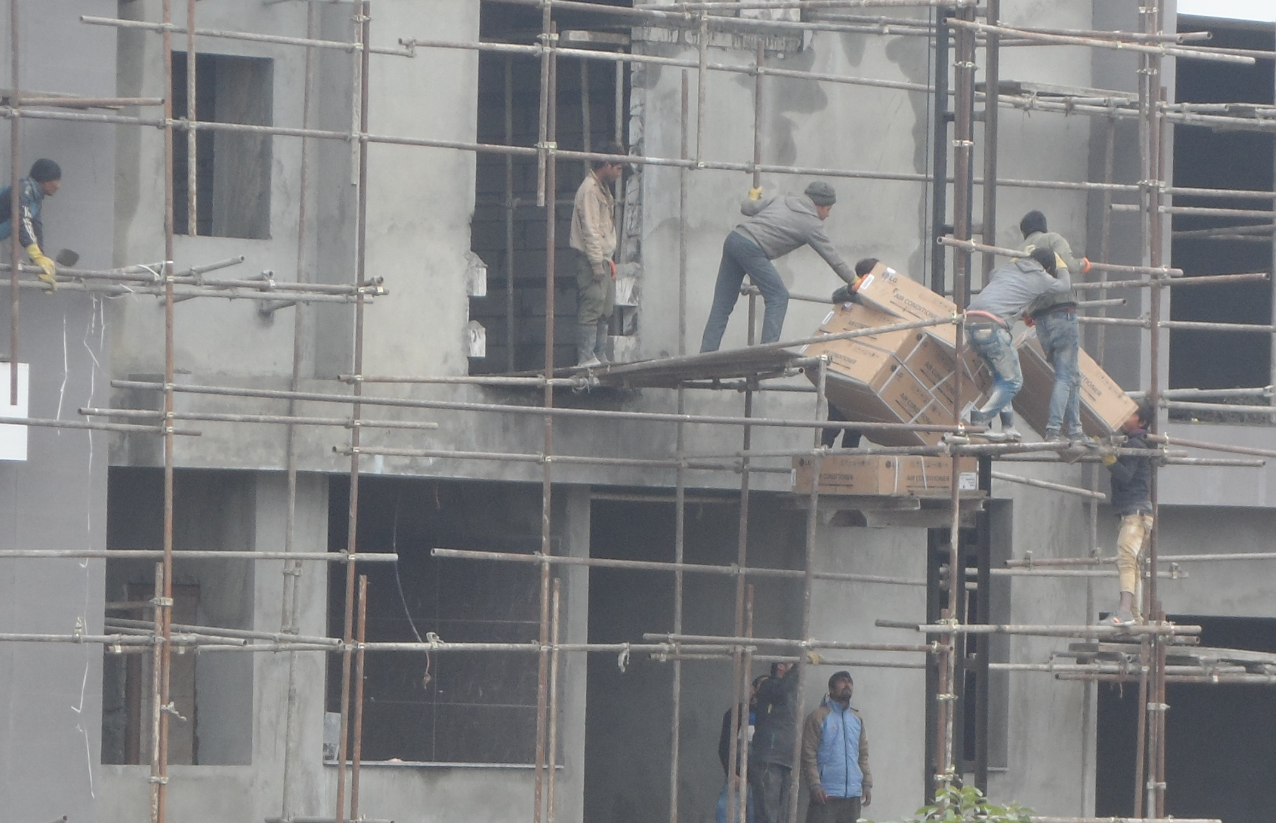

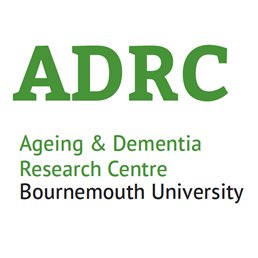
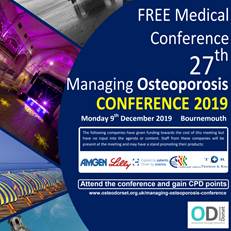



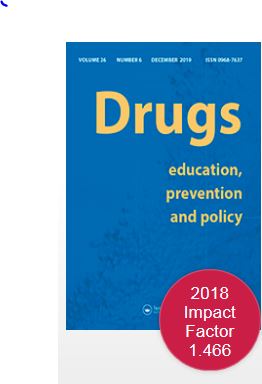
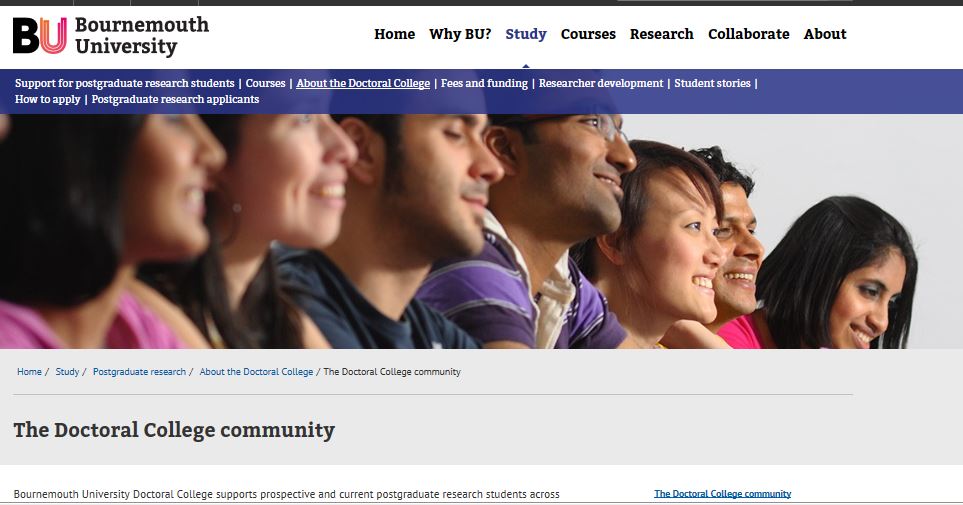
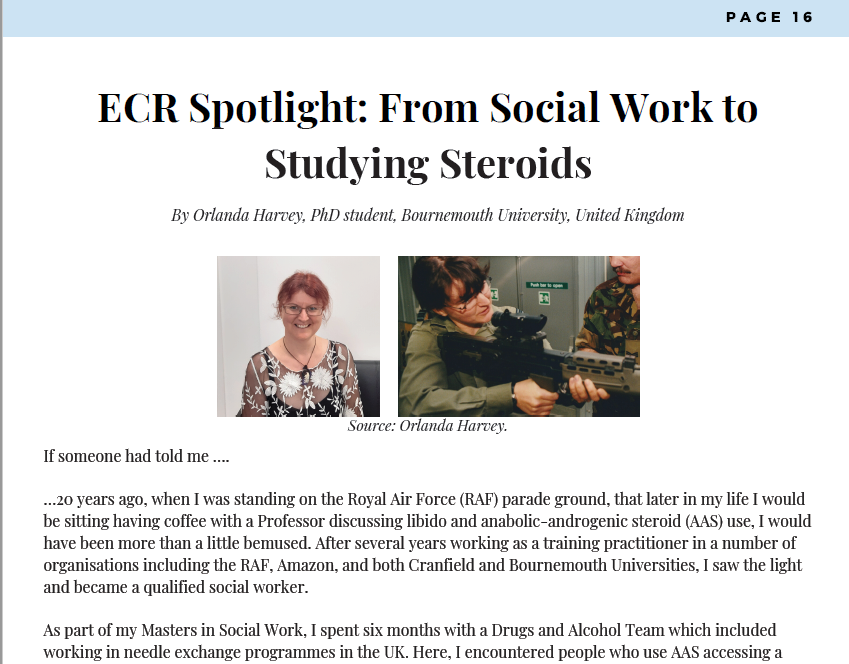

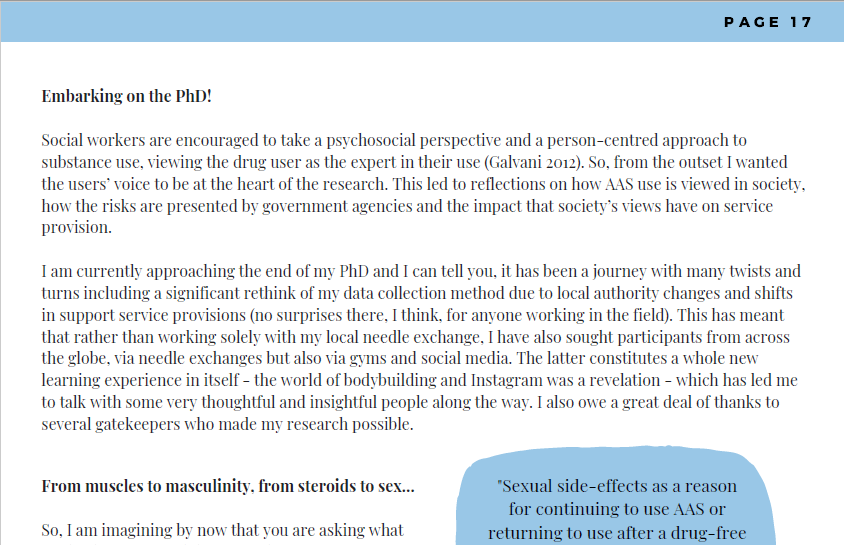
 UKRI is very pleased to announce a
UKRI is very pleased to announce a 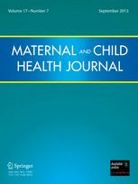

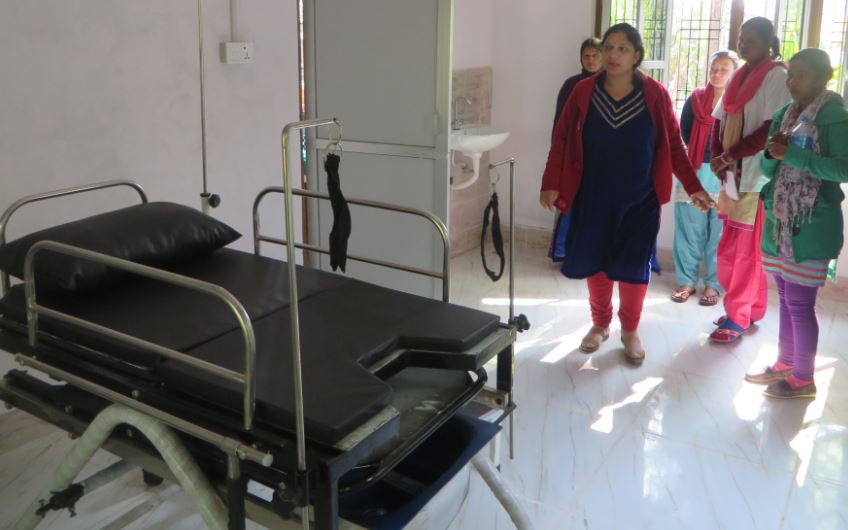











 New Seed Fund for Public Engagement with Research: Last Six Funding Opportunities Available
New Seed Fund for Public Engagement with Research: Last Six Funding Opportunities Available Congratulation on new interdisciplinary publication
Congratulation on new interdisciplinary publication BU professor speaking at Aberdeen Centre for Women’s Health Research (ACWHR)
BU professor speaking at Aberdeen Centre for Women’s Health Research (ACWHR) Reminder: Opportunity to get more involved in preparing Social Work and Social Policy REF 2029 submission – impact and engagement
Reminder: Opportunity to get more involved in preparing Social Work and Social Policy REF 2029 submission – impact and engagement New seed fund for public engagement with research: open for applications
New seed fund for public engagement with research: open for applications Horizon Europe News – December 2023
Horizon Europe News – December 2023